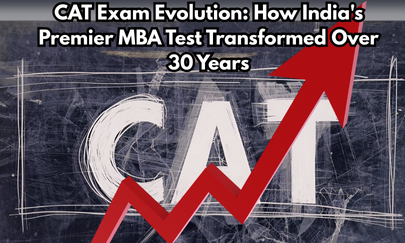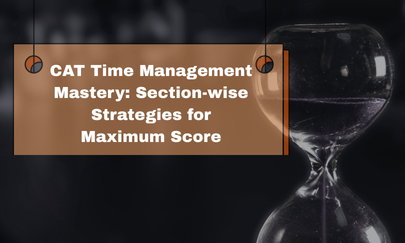
An MBA in Human Resources (HR) is one of the most sought-after specializations in today’s evolving corporate landscape. As organizations recognize the importance of effective people management, the demand for skilled HR professionals continues to grow. A specialized MBA in HR equips students with essential skills and knowledge to manage a company's most valuable asset—its people.
In this blog, we’ll explore what an MBA in HR entails, its benefits, career opportunities, core curriculum, and factors to consider when choosing this specialization.
What is an MBA in HR?
An MBA in HR is a specialized degree focusing on human resource management within an organization. This degree prepares individuals to understand complex organizational dynamics, implement effective hiring strategies, oversee employee relations, design compensation packages, and manage workforce diversity. It also includes training in soft skills such as communication, negotiation, and conflict resolution, which are vital in the HR field.
The curriculum of an MBA in HR integrates core business principles with specialized HR concepts, creating well-rounded professionals capable of addressing both business and people-related challenges in any organization.
Why Pursue an MBA in HR?
1. High Demand for HR Professionals
Human resource management is critical for all industries, creating a steady demand for qualified HR professionals. Companies look for skilled HR managers who can adapt to the changing dynamics of a globalized workforce. With an MBA in HR, graduates position themselves as strategic leaders who play a crucial role in achieving organizational goals.
2. Broad Range of Career Opportunities
An MBA in HR opens doors to various positions in different industries, including roles such as HR manager, talent acquisition specialist, compensation manager, employee relations expert, and HR consultant. This versatility makes HR one of the most flexible MBA specializations, allowing graduates to work in sectors ranging from finance and healthcare to technology and retail.
3. Competitive Salaries
HR professionals, particularly those with an MBA, are offered competitive salaries. Graduates can expect lucrative packages, especially in roles that require strategic planning and decision-making. Positions such as HR Director or Chief Human Resources Officer (CHRO) come with significant earning potential, often offering six-figure salaries.
4. Opportunity for Leadership Roles
An MBA in HR not only imparts technical skills but also cultivates leadership qualities essential for career advancement. Graduates are equipped to manage teams, influence organizational culture, and contribute to high-level decision-making process. Many HR MBA holders rise to executive roles where they help shape company policies and drive business growth.
5. Develops a Holistic Business Perspective
The MBA curriculum covers a wide range of topics, including finance, marketing, and strategic management, giving HR professionals a broader business perspective. This comprehensive knowledge allows HR managers to understand other departments' needs and align HR strategies with the company’s overall goals.
Core Curriculum in MBA in HR
The curriculum for an MBA in HR is a blend of business fundamentals and specialized HR topics. Below are some key courses that students can expect:
1. Organizational Behavior
This course explores the dynamics of human behavior in organizations. Topics include motivation, team building, leadership, and organizational culture, providing insights into how to effectively manage and influence employee behavior.
2. Human Resource Management
A fundamental course that covers various aspects of HR, such as hiring practices, talent acquisition, employee development, and performance evaluation. Students learn best practices for managing human capital and maximizing employee productivity.
3. Compensation and Benefits Management
This course delves into salary structures, incentives, and benefits packages. Students learn how to create compensation plans that attract and retain top talent while aligning with the company's financial goals.
4. Labor Law and Employment Relations
Understanding labor laws and regulations is crucial for HR professionals. This course provides knowledge on legal standards, employee rights, and dispute resolution, helping HR managers ensure compliance and foster positive labor relations.
5. Strategic HR Planning
Students learn how to create long-term HR strategies that align with organizational objectives. Topics include workforce planning, succession planning, and identifying skill gaps, enabling HR managers to proactively support business growth.
6. Talent Acquisition and Retention
This course focuses on hiring strategies, from identifying talent to onboarding. It emphasizes the importance of retaining top employees, covering topics like employee engagement and career development opportunities.
7. Training and Development
Effective training programs are essential for enhancing employee skills and knowledge. This course explores different training methodologies, needs analysis, and evaluation metrics to design impactful learning initiatives.
Career Opportunities with an MBA in HR
1. HR Manager
HR managers handle various HR functions, including recruitment, employee relations, benefits, and compliance. They play a crucial role in maintaining a productive and harmonious workplace.
2. Talent Acquisition Specialist
Responsible for attracting and hiring top talent, talent acquisition specialists work closely with department heads to identify staffing needs and develop hiring strategies that align with company goals.
3. Compensation and Benefits Manager
This role involves designing, implementing, and managing compensation packages that attract and retain employees. It requires a good understanding of labor market trends and financial constraints.
4. Employee Relations Manager
Employee relations managers focus on maintaining positive relationships between employees and management. They handle disputes, manage employee grievances, and foster a supportive work environment.
5. HR Consultant
HR consultants advise companies on HR strategies, organizational structure, and employee development programs. Many companies hire HR consultants to handle large-scale HR projects, such as mergers and acquisitions or restructuring.
6. Chief Human Resources Officer (CHRO)
The CHRO is an executive-level role responsible for overseeing the entire HR function. This position requires strategic thinking, leadership skills, and a deep understanding of business operations, making it one of the most prestigious roles for HR professionals.
Key Considerations for Pursuing an MBA in HR
1. Accreditation of the Program
Choosing an accredited MBA program is essential for ensuring the quality and recognition of your degree. Accreditation from bodies such as the Association to Advance Collegiate Schools of Business (AACSB) or the Accreditation Council for Business Schools and Programs (ACBSP) can enhance the value of your MBA.
2. Curriculum and Faculty
Look for programs that offer a comprehensive curriculum taught by experienced faculty. The quality of the curriculum and faculty can significantly impact your learning experience and readiness for the workforce.
3. Internships and Practical Experience
Hands-on experience is invaluable in HR. Programs offering internships or practical projects provide students with real-world insights, allowing them to apply their classroom knowledge in a corporate setting.
4. Networking Opportunities
An MBA program should offer ample networking opportunities, such as industry seminars, networking events, and alumni interactions. Networking is critical for career growth, particularly in HR, where relationships can lead to job opportunities and professional collaborations.
5. Career Services and Placement
Look for programs with strong career support and placement services. A robust placement cell can help connect you with top companies and increase your chances of landing a well-paying job after graduation.
Top MBA Colleges for MBA in HR
1-MDI- Gurgaon
- Exams Accepted: CAT
- PGDM (HRM) Total Fees: INR 21.60 Lakhs
- Highest Package: 60 LPA
2- XLRI- Jamshedpur
- Exams Accepted: XAT
- PGDM (HRM) Total Fees: INR 28.60 Lakhs
- Highest Package: 75 LPA
3- NMIMS- Mumbai
- Exams Accepted: NMAT
- MBA (HRM) Total Fees: INR 25 Lakhs
- Highest Package: 25.95 LPA
4- SIBM- Pune
- Exams Accepted: SNAP
- MBA (HR) Total Fees: INR 24.20 Lakhs
- Highest Package: 49 LPA
5- IMT- Ghaziabad
- Exams Accepted: CAT / XAT
- PGDM Total Fees: INR 21.53 Lakhs
- Highest Package: 65.6 LPA
6- TAPMI- Manipal
- Exams Accepted: CAT / XAT / NMAT
- MBA (HRM) Total Fees: INR 17.54 Lakhs
- Highest Package: 65.6 LPA
7- FORE School of Management- Delhi
Exams Accepted: CAT / XAT
PGDM Total Fees: INR 18.27 Lakhs
Highest Package: 70 LPA
8- GIBS B-School, Bangalore
- Exams Accepted: CAT / XAT / CMAT / MAT / ATMA / State CET Test
- PGDM Total Fees: INR 9.50 Lakhs
- Highest Package: 16.15 LPA
9- Alliance University- Bangalore
- Exams Accepted: AMAT
- MBA Total Fees: INR 15 Lakhs
- Highest Package: 35 LPA
10- UPES- Dehradun
- Exams Accepted: UPESMET / CAT / MAT / XAT / CMAT / NMAT
- MBA Total Fees: INR 16.50 Lakhs
- Highest Package: 20 LPA
An MBA in HR is an excellent choice for those who have a passion for people management and aspire to make a meaningful impact on organizational culture and productivity. With a complete curriculum, diverse career opportunities, and lucrative salaries, this specialization offers a promising career path for aspiring HR professionals. As businesses continue to recognize the value of effective HR management, MBA graduates in HR are poised to play key roles in shaping the future of the corporate world.
Any question in your mind?
Connect to our counsellor: 8826807515












